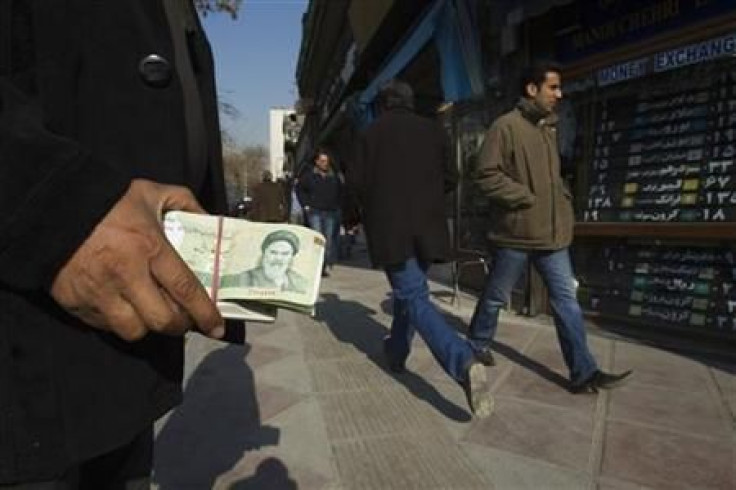Iranians Protest Currency Collapse: Reports

Reports are filtering out of Iran Wednesday that the country’s currency crisis has sparked street clashes between protesters and riot police in the capital city of Teheran.
Already reeling from Western economic sanctions over its nuclear program, the rial currency recently plunged to an all-time low against the U.S. dollar. Since Sunday alone, the rial has lost one-third if its value, making it impossible for ordinary Iranians to purchase staples.
BBC reported that police used tear gas to disperse demonstrators, some of whom set fire to trash cans and tires, leading to many arrests. A number of demonstrators reportedly chanted slogans against the government of President Mahmoud Ahmadinejad.
Hundreds of people also apparently marched to the office of the central bank to vent their frustrations.
Some city shopkeepers and traders also closed down in sympathy with the protesters.
Iran is facing a multitude of economic crises.
Iran’s principal export and source of revenue, crude oil exports, have plunged -- to 1.1 million barrels per day in August 2012 from an average of 2.5 million barrels, according to the International Energy Agency, meaning the government has lost billions of dollars of revenue it desperately needs.
Anger among the public is hardly surprising.
A woman in the city of Malayer, 400 kilometers southwest of Teheran, told BBC: "The situation is becoming worse and worse every day. I work in the main hospital in the city and we are encountering some serious problems. We can't buy necessary medication because prices go up by 70 percent a day."
Kasra Naji, a BBC correspondent, commented: “It is not every day that you see anti-government protests in Iran. … What has led them to frustration is the continuing free fall of the value of the Iranian rial - in recent days by 15 percent per day. This speed of devaluation has made it very difficult for them to buy and sell as prices change on hourly basis.”
Naji added: “Worse still, they find President Ahmadinejad, who seems to have little idea about how to arrest the downward spiral of the currency, blaming them for the crisis. It is clear that Mr. Ahmadinejad's many enemies in various centers of power have begun a push to remove him before his term ends in June 2013. He may be the first big casualty of the sanctions against Iran. But Mr. Ahmadinejad is a fighter and his removal may not be that easy.”
Iran’s media have fiercely criticized the president.
Khorasan, a conservative publication, wrote in an editorial: "Mr. Ahmadinejad, are you the country's president?"
As for Ahmadinejad, who is unpopular with the mullahs allied to Supreme Leader Ayatollah Ali Khamenei, he has delivered contradictory remarks on the sanctions.
On one hand, he said that the sanctions are useless and have not had any impact on Iran’s economy. On the other, he has characterized sanctions (and the collapse of the rial) as a tantamount to "psychological warfare" by Iran's foreign and domestic "enemies."
Nigel Kushner, chief executive of W Legal, a law firm that deals with sanctions compliance, told the Daily Telegraph: "My view is Iran is like a rabbit glaring at the headlights of an oncoming juggernaut. It is reacting too late and in a half-hearted manner."
Kushner added: "We will see a real financial crisis in the coming months because the economy cannot sustain this. It is bad, but will become a lot worse."
© Copyright IBTimes 2024. All rights reserved.











